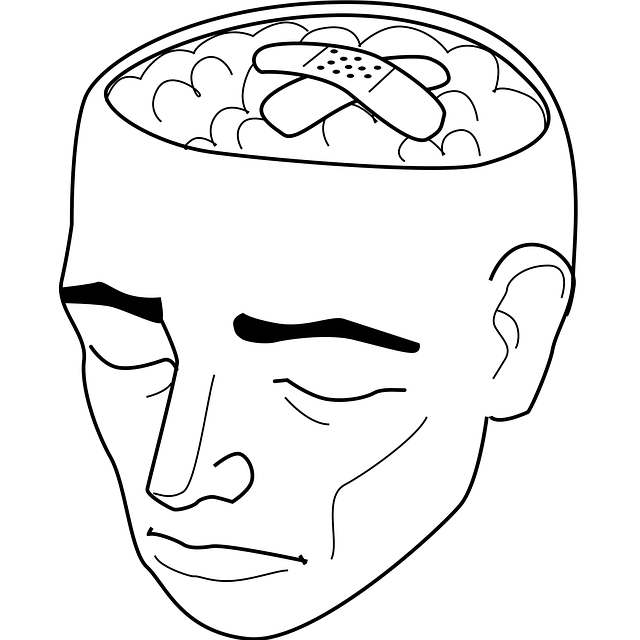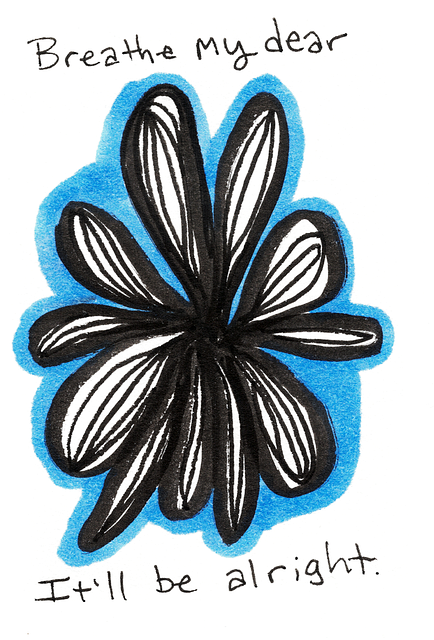In today's digital era, apps for mental wellness, particularly focusing on Denver Alcohol Abuse Therapy, are gaining popularity as effective and accessible tools. These apps offer personalized, evidence-based practices tailored to individual needs, reaching a broader audience with discreet support. By integrating features like mood tracking, mindfulness exercises, and crisis intervention, they empower users in managing their mental health. In Denver, where cultural diversity coexists with substance abuse issues, these apps cater to the unique needs of the community, ensuring inclusive care through cultural competency training. Effective marketing strategies, combined with strategic app development focusing on specific goals like Denver Alcohol Abuse Therapy or burnout prevention, are key to standing out in a competitive market and contributing to positive public health outcomes.
In the digital age, mental wellness apps are transforming access to care, especially for issues like alcohol abuse. This article explores the burgeoning landscape of Denver Alcohol Abuse Therapy applications, highlighting the importance of addressing these challenges in our modern society. We’ll delve into key components, from understanding the nuances of mental health and identifying the specific need for digital interventions like Denver Alcohol Abuse Therapy apps, to technical considerations and successful marketing strategies for engaging users and fostering continuous improvement.
- Understanding Mental Health and Wellness in the Digital Age
- Identifying the Need for Denver Alcohol Abuse Therapy Apps
- Key Features of Effective Alcohol Abuse Therapy Applications
- Development Process and Technical Considerations
- Marketing, User Engagement, and Continuous Improvement Strategies
Understanding Mental Health and Wellness in the Digital Age

In today’s digital age, understanding mental health and wellness has evolved significantly, with technology playing a pivotal role in reaching and assisting individuals who may be struggling. The demand for accessible mental wellness solutions is on the rise, particularly for issues like Denver Alcohol Abuse Therapy, where timely intervention can make a substantial difference. Apps designed to promote emotional well-being and offer crisis intervention guidance are becoming increasingly popular and effective tools. These digital platforms provide an opportunity to reach a broader audience, offering discreet, convenient, and often cost-effective support.
By integrating evidence-based practices, these apps empower users with the skills needed to manage their mental health. Through various features like tracking moods, setting goals, and accessing mindfulness exercises, individuals can actively participate in their emotional well-being promotion techniques. Additionally, crisis intervention resources within these apps ensure that users have quick access to support during periods of distress, potentially reducing the impact of mental health crises.
Identifying the Need for Denver Alcohol Abuse Therapy Apps

In the bustling landscape of modern city life, like Denver, where pressures and stresses are as abundant as the vibrant culture, the need for effective Denver Alcohol Abuse Therapy apps becomes increasingly evident. These digital tools can provide accessible support for individuals navigating through challenges related to substance abuse, a growing concern in urban areas. The popularity of mobile applications in healthcare is not just a trend; it’s a necessity driven by our evolving lifestyles and the desire for personalized wellness solutions.
With an increasing awareness about mental health, there’s a growing demand for innovative approaches to inner strength development and burnout prevention. Denver Alcohol Abuse Therapy apps can cater to diverse user needs, offering discreet, convenient, and effective interventions. Moreover, integrating these apps with proper healthcare provider cultural competency training ensures inclusive care, addressing the unique challenges faced by different communities in Denver and beyond.
Key Features of Effective Alcohol Abuse Therapy Applications

Effective alcohol abuse therapy applications should incorporate a range of key features designed to support users on their journey to recovery. First and foremost, these apps must offer personalized plans tailored to individual needs, recognizing that each person’s path to sobriety is unique. This includes adaptive content that evolves with the user’s progress, addressing specific triggers and challenges they may face in their daily lives, especially those rooted in Denver Alcohol Abuse Therapy contexts.
Additionally, integrating evidence-based practices such as Conflict Resolution Techniques and Trauma Support Services can be transformative. Features like guided meditation, mindfulness exercises, and coping mechanisms taught through Empathy Building Strategies empower users with tools to manage cravings and relapses. Many successful apps also incorporate community elements, enabling users to connect anonymously for support and encouragement, fostering a sense of belonging that’s crucial for maintaining long-term sobriety.
Development Process and Technical Considerations

The development process for a mental wellness app should be approached with careful consideration and strategic planning to ensure its effectiveness in supporting user well-being. It begins with defining specific goals, such as addressing Denver Alcohol Abuse Therapy or promoting Burnout Prevention through tailored features. Researchers and developers collaborate to gather insights from professionals like therapists and psychologists, ensuring the app’s content aligns with evidence-based practices. This phase involves market research to understand competitors and identify unique value propositions.
Technical considerations play a pivotal role in bringing this digital solution to life. Developers choose suitable platforms (iOS, Android) and programming languages while keeping user experience in mind. Integrating secure data storage and encryption methods is essential for protecting sensitive user information. Additionally, incorporating features that foster Emotional Intelligence and Anxiety Relief through mindfulness exercises or cognitive-behavioral techniques can enhance the app’s appeal and functionality.
Marketing, User Engagement, and Continuous Improvement Strategies

In the competitive landscape of mental wellness apps, successful marketing strategies are key to standing out, especially in a niche like Denver Alcohol Abuse Therapy. Leveraging digital channels effectively can reach a wide audience seeking support. Public Awareness Campaigns Development can play a pivotal role in educating users about the app’s benefits and fostering a culture of open dialogue around mental health. Engaging content, compelling testimonials, and partnerships with reputable organizations can significantly boost visibility and credibility.
User engagement is another critical aspect that drives app success. Incorporating interactive features like personalized dashboards, gamified challenges for emotional regulation and mindfulness meditation, and regular check-ins ensures users stay connected and motivated. Continuous improvement strategies are essential; gathering user feedback, analyzing engagement metrics, and iteratively updating the app based on insights can enhance user satisfaction and retention. By consistently delivering valuable content and experiences tailored to individual needs, mental wellness apps can foster long-term user engagement and contribute positively to public health initiatives.
The development of mental wellness apps, particularly those focused on Denver Alcohol Abuse Therapy, presents a powerful opportunity to enhance access to care and support individuals in their journey towards recovery. By integrating evidence-based practices and leveraging technology, these applications can provide personalized, accessible, and discrete interventions. As the demand for digital mental health solutions continues to grow, developers must prioritize user-centric design, data security, and innovative features to meet the unique needs of those seeking Denver Alcohol Abuse Therapy. Through a comprehensive approach that includes robust marketing strategies and continuous improvement, these apps have the potential to revolutionize the way we address alcohol abuse in our community.














